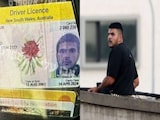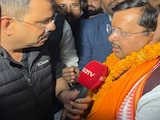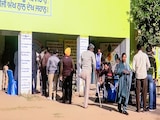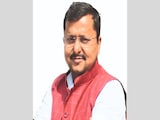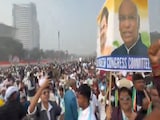Uttar Pradesh Chief Minister Yogi Adityanath on July 19 ordered hotels, restaurants, food carts and eateries along the Kanwar Yatra route to display the names of their owners. The Uttarakhand government also issued a similar direction, of installing nameplates on board across the Yatra route to facilitate the pilgrims.
The Uttar Pradesh government's order came days after the Muzaffarnagar Police issued directives to all the eateries on the Yatra route to display the names of their respective owners to avoid any 'confusion'. The government's official stance was that the order was passed to maintain the purity of the faith of Kanwar pilgrims.
Amid the ongoing controversy over these guidelines, the civic body in Madhya Pradesh's Ujjain also issued a similar instruction. Ujjain Mayor Mukesh Tatwal argued that devotees had the right to know about shopkeepers whose services they were availing of. "If a customer is dissatisfied or cheated, knowing the shopkeeper's details allows them to seek redressal." He also said that the directive was for ensuring safety and transparency and not to target Muslim shopkeepers. "The order to display names was passed nearly a year back and is not restricted to just Kanwar Yatra. But several eatery owners were not found obeying the order and thus, the order was passed again," Tatwal said, defending the notice. "We have not copied Uttar Pradesh or Uttarakhand governments. There have been problems locally and we are trying to sort them out," he said.
What The SC Said
Ultimately though, the Supreme Court on Monday stayed the Uttar Pradesh, Uttarakhand and Madhya Pradesh governments' directives. The apex court, while passing the interim order, issued notice to all three states and asked them to file their respective replies and fixed the matter for further hearing on July 26. On the validity of the order, Ashwini Upadhyay, Supreme Court advocate, says, "The government orders are both constitutional and legal. Not only the fundamental right under Article 19 of the Constitution, but the Consumer Protection Act also gives the right to the consumers to know about the manufacturer, to know about the product, to know about the content of the product and also to know about the sale. Similarly, the Food Safety Act also gives a right to the consumer to know who has made the food product and also who is selling the product."
He adds, "Chartered accountants, doctors, lawyers, tahsildar, collector, SP (Superintendent of Police), everyone displays their names outside their office. What is the problem with shopkeepers displaying their names? These government orders were long due and should have been passed a while ago."
A Political Move?
However, the order - supposedly passed to avoid any 'confusion' - has sparked allegations by the Opposition of targeting Muslim traders. Not just the opposition, National Democratic Alliance (NDA) partners Chirag Paswan and Nitish Kumar have also spoken against the order. Another NDA member, Jayant Choudhary, said the order was "not well thought out" and asked the Uttar Pradesh government to reconsider its directives. Senior BJP leader and former Union minister Mukhtar Abbas Naqvi had also slammed the order.
This year, days ahead of the Kanwar Yatra, Swami Yashveer Maharaj of the Baghra Ashram in Muzaffarnagar alleged that a large number of Muslim eatery owners were hiding their identities and displaying posters with fake Hindu names. A major portion of the Kanwar Yatra route falls in Muzaffarnagar district. Last year too, Swami Maharaj had made similar allegations and demanded that the administration should ask eatery owners to display the names of their owners or operators. He also warned of protests and agitations if action was not taken.
Balanced Approach
In a sensitive state like Uttar Pradesh, such an order stretches the transparency argument to a different level. Arguably, it is to respect the religious sentiments of those who don't want to engage with anyone other than from their own faith during the pilgrimage. But the three governments seem to have taken this decision without consulting or taking into confidence all the stakeholders.
A democracy like ours can't afford to exclude any section of society. Such sensitive orders must be considered only with due consultations.
(Bharti Mishra Nath is Contributing Editor, NDTV)
Disclaimer: These are the personal opinions of the author



